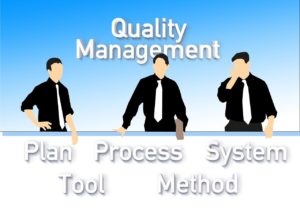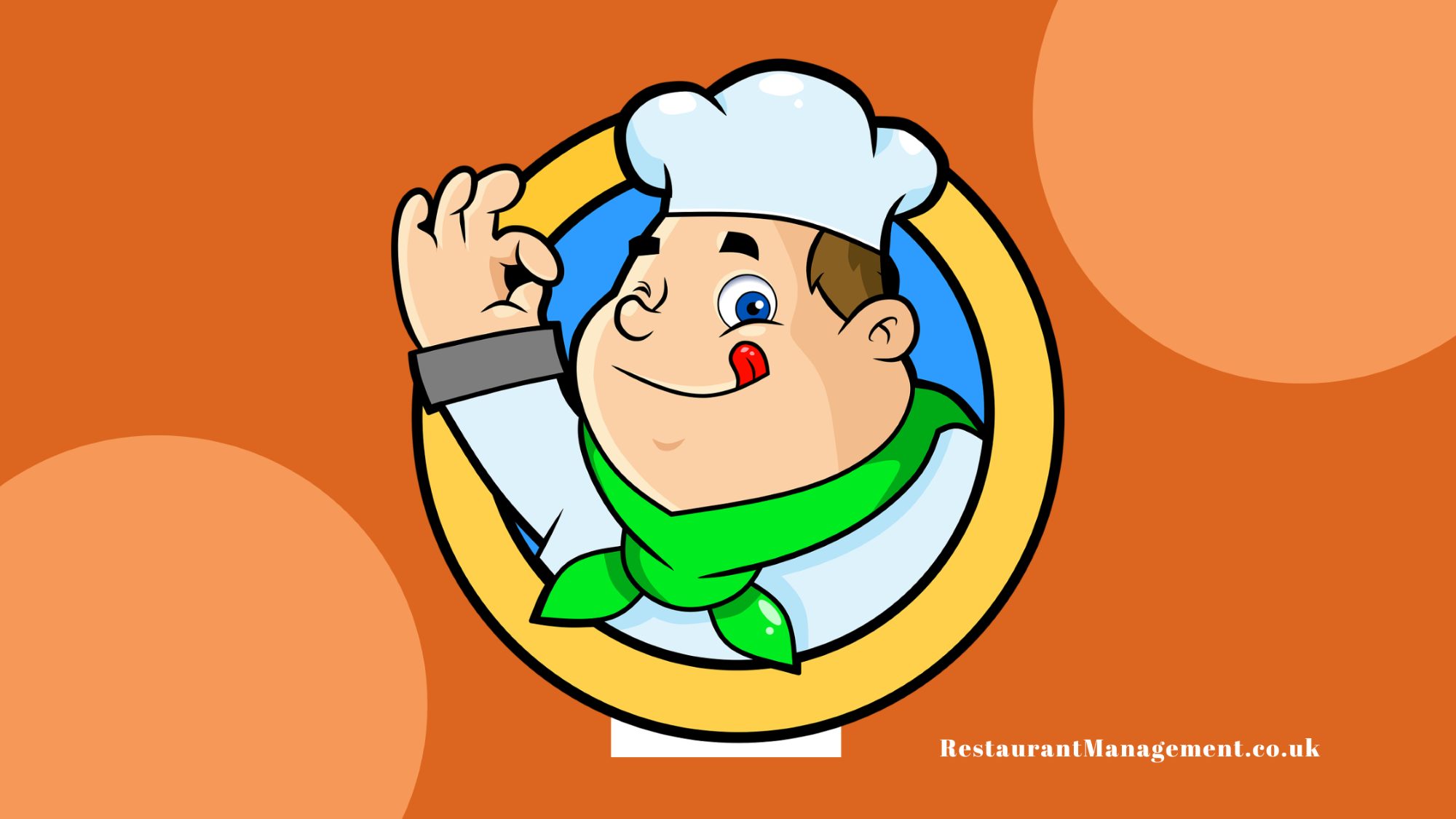How To Manage A Restaurant Business
Introduction
Running a restaurant is challenging, with approximately 60% of new restaurants failing within their first year and nearly 80% closing within five years. This statistic underscores the importance of effective management in the restaurant industry. A well-managed restaurant can survive and thrive, attracting a loyal customer base and generating substantial profits. Effective management encompasses various aspects, from planning and preparation to daily operations and customer service. This article aims to offer insights into how to manage a restaurant business successfully, guaranteeing its long-term sustainability and prosperity.

Planning and Preparation
Market Research
How to manage a restaurant business successfully? Well, the first step in managing a successful restaurant business is conducting a thorough market research. Identifying your target demographics is crucial; understanding your potential customer’s age, income levels, preferences, and dining habits allows you to tailor your offerings to meet their needs.
Analysing competitors provides insights into what works and what doesn’t in your local market. Visit other restaurants, read reviews, and understand their strengths and weaknesses. Location scouting is another critical aspect. A prime location can significantly boost your foot traffic, but it must be feasible regarding rent and accessibility. Conduct feasibility studies to evaluate the potential of different places, considering factors like visibility, parking, and proximity to other businesses.
Business Plan Development
Crafting a solid business plan is the foundation of any successful restaurant. A well-thought-out business plan outlines your restaurant’s concept, target market, competitive landscape, marketing strategy, and financial projections. It serves as a roadmap, guiding your business decisions and helping you stay focused on your goals. Setting realistic goals and milestones is essential. Break down the restaurant’s long-term goals into smaller, manageable objectives and tasks, and establish a timeline for completing them.
Financial planning and budgeting are both important components. Estimate your startup costs, including equipment, renovations, and initial inventory, and plan for ongoing expenses like rent, utilities, and payroll. Create a detailed budget to monitor your earnings and spending, ensuring you have enough funds to support your business operations and expand over time.
Spending time and energy on comprehensive planning and preparation establishes a solid groundwork for your restaurant, boosting its likelihood of success. Understanding your customers and competitors is facilitated by market research, while a thorough business plan steers strategic decisions and financial management. These elements set the stage for effective restaurant management and long-term success.

Setting Up Your Restaurant
Design and Ambiance
The appearance and atmosphere of your dining establishment are essential for drawing in and keeping customers. A unique and appealing theme can set your restaurant apart from competitors and create a memorable dining experience. Start by choosing a theme and concept that resonates with your target audience and reflects your brand identity. Whether it’s a cosy, rustic bistro or a sleek, modern establishment, consistency in design elements is critical. Factors such as colour schemes, lighting, furniture, and decor should be considered to establish a welcoming ambience that entices guests to revisit.
Interior design also impacts operational efficiency. The layout should facilitate smooth workflows for your staff, from the kitchen to the dining area. Ensure there’s adequate space for movement, and arrange tables in a manner that maximises seating capacity without compromising comfort. Additionally, consider the acoustic environment; noise levels should allow for comfortable conversation without being too loud or quiet. By thoughtfully designing your restaurant’s interior, you enhance the customer experience and your operational effectiveness.
Licensing and Compliance
Navigating the maze of licenses and permits is essential to setting up your restaurant. Failure to adhere to local regulations may lead to fines or possible closure. Start by determining the licenses and authorisations needed in your locality, such as business, health, alcohol, and food handler permits. Each license type has its own application process and requirements, so starting early and staying organised is crucial.
Understanding health and safety regulations is equally important. These regulations guarantee the well-being of your customers and employees, encompassing food preparation, cleanliness, and structural integrity. Regularly update your knowledge of these regulations, as they can change over time. Implementing rigorous health and safety protocols keeps you compliant and builds trust with your customers. Regular inspections and staff training sessions can help maintain high standards and avoid legal or reputational issues.
Restaurant Management Skills Needed To Skyrocket Your Business Profits
How To Manage A Restaurant Business Successfully – Building A Stellar Team
Hiring the Right Staff
Your restaurant’s success relies on your staff, so selecting the right team is essential. Begin by determining the vital positions required in your restaurant, such as chefs, managers, waitstaff, and kitchen assistants. Each role requires specific skills and qualities, so tailor your recruitment strategy accordingly. For example, chefs should have culinary expertise and creativity, while waitstaff should be personable and efficient.
Effective recruitment begins with clear and detailed job descriptions. Highlight the responsibilities, qualifications, and expectations for each position. Utilise various recruitment channels, such as job boards, social media, and industry networks, to attract diverse candidates. During the interview process, ask targeted questions that reveal candidates’ skills, experience, and cultural fit. Consider evaluating their skills in a real-life environment by arranging practical tests, like cooking trials for chefs or role-playing exercises for waitstaff.
Training and Development
After you have recruited and formulated your team, allocate resources for thorough training and development initiatives. A well-trained staff can deliver exceptional service, enhancing the overall customer experience. Begin with a comprehensive onboarding process that familiarises new hires with your restaurant’s policies, procedures, and culture. Provide hands-on training in their roles, ensuring they understand their responsibilities and your expected standards.
Ongoing training is equally important. Regular workshops and refresher courses can help your staff stay updated with industry trends, new menu items, and best practices. Encourage continuous improvement by offering opportunities for professional development, such as certifications or advanced training programs. A supportive work atmosphere emphasising collaboration, effective communication, and reciprocal esteem may also enhance employee spirits and loyalty. By focusing on training and development, you build a skilled and motivated team capable of consistently delivering high-quality service.
Happy Restaurant Staff: 20 Tips On How To Make Your Employees Happy
Menu Planning and Management
Menu Design
A well-crafted menu is central to your restaurant’s identity and success. It should reflect your concept and appeal to your target demographics. Begin by creating a well-rounded menu with a selection of dishes to accommodate various tastes and dietary requirements. Seasonal and specialty items can add excitement and encourage repeat visits. Remember that a streamlined menu can improve operational efficiency by simplifying inventory management and kitchen workflows.
Pricing strategy is another crucial aspect of menu design. Your prices should cover costs and ensure profitability while remaining attractive to customers. Consider ingredient costs, preparation time, and portion sizes when setting prices. Using a mix of high-margin items and more affordable options can help balance profitability and customer satisfaction. Additionally, the visual design of your menu is essential; use clear fonts, appealing images, and logical organisation to make it easy for customers to navigate and make choices.
Supplier Relationships
Establishing good relationships with reliable suppliers is essential for maintaining the quality and consistency of your food. Start by selecting suppliers who offer high-quality ingredients at competitive prices. Also, having multiple suppliers for each category of goods is beneficial to mitigate risks associated with supply chain disruptions. Negotiating contracts can help secure favourable terms and pricing but ensure these agreements are flexible enough to adapt to changing circumstances.
Regular communication with your suppliers is critical to a successful partnership. Maintain open lines of communication to address any issues promptly and build a relationship based on trust and mutual benefit. Regularly review your suppliers’ performance regarding product quality, delivery reliability, and pricing. By fostering strong supplier relationships, you ensure a steady flow of high-quality ingredients, vital for delivering a consistent dining experience to your customers.

How To Manage A Restaurant Business Successfully – Operational Excellence
Daily Operations Management
Effective management of daily operations is critical to your restaurant’s success. Start by creating efficient workflows that streamline processes from food preparation to customer service. Implementing standardised procedures can minimise errors and enhance consistency. Regularly review and refine these workflows to identify areas for improvement. Inventory management is another crucial aspect. Maintain accurate records of stock levels and implement a system for tracking inventory usage, which helps prevent shortages and reduces waste, contributing to better cost control.
Scheduling and shift planning are also crucial for smooth operations. Ensure you have the correct number of staff to handle peak times and special events without overstaffing during quieter periods. Use scheduling software to manage shifts efficiently, accommodate staff preferences, and prevent conflicts. Regular staff meetings also help keep everyone aligned and address any operational issues promptly. Focusing on daily operations management ensures that your restaurant runs smoothly and efficiently, providing a consistent and high-quality customer experience.
Technology Integration
Incorporating technology into your restaurant operations can significantly enhance efficiency and customer satisfaction. Start with a robust point-of-sale (POS) system that streamlines order processing, payments, and inventory management. Modern POS systems offer features such as table management, sales reporting, and integration with online ordering platforms, which can help improve overall operational efficiency. Additionally, consider implementing restaurant management software that offers functionalities like employee scheduling, reservation management, and customer relationship management.
Using data analytics can help provide valuable insights into your restaurant’s performance. Examine sales data to recognise patterns, favoured menu options, and busiest times of day for business. This information can inform decisions on staffing, menu adjustments, and marketing strategies. Embracing technology simplifies management tasks and enhances the customer service experience by reducing wait times, improving order accuracy, and offering convenient payment options. Integrating technology into your restaurant operations will allow you to position your restaurant for greater efficiency and success in a competitive market.

Marketing and Customer Engagement
Branding and Marketing
Creating a robust brand identity for your restaurant is essential for attracting and keeping customers. Your brand should reflect your restaurant’s unique concept and values, creating a lasting impression. Start by defining your brand’s voice, visual style, and key messaging. Consistency across all marketing materials, from your logo and website to social media profiles and menus, helps reinforce your brand identity.
Effective marketing strategies for your restaurant are essential for reaching your target audience. Utilise both online and offline channels to maximise your reach. Online marketing should include a user-friendly website, active social media presence, and advertising campaigns. Use Search engine optimisation (SEO) to improve your website’s visibility on search engines. Additionally, consider leveraging influencer marketing and partnerships with local businesses to increase your restaurant’s exposure. Offline marketing strategies, such as local events, print advertisements, and community involvement, can drive your restaurant’s traffic.
Customer Service Excellence
Exceptional restaurant customer service is the cornerstone of a successful restaurant. Train all your staff to deliver friendly, attentive, and personalised service. Encourage them to build rapport with customers, remember regular customers’ names and preferences, and go the extra mile to enhance the dining experience. All your staff must be trained in problem-solving skills and effective communication for handling customer feedback and complaints. When a customer complains, your staff should listen actively, empathise with the customers’ concerns, and resolve issues promptly and professionally.
Building loyalty programs can encourage repeat business and foster long-term customer relationships. Incentives such as discounts, special offers, or exclusive events for loyal customers are a great way to start. Regularly seek feedback through surveys or comment cards to analyse and understand customer preferences and identify areas for improvement. By prioritising customer service excellence, you create a positive dining experience that encourages repeat visits and generates positive word-of-mouth referrals.
Restaurant Finance Management: How To Start Generating Awesome Profits
How To Manage A Restaurant Business Successfully – Financial Management
Budgeting and Cost Control
The sustainability of your restaurant relies heavily on efficient financial management. Start with a detailed budget that outlines all expected income and expenses. Carefully monitor your income and expenses to stay within budget and catch any discrepancies early. Cost-saving measures should be implemented, including optimising inventory management, minimising waste, and bargaining for improved supplier deals.
Regular financial analysis is crucial for maintaining a healthy cash flow and identifying opportunities for improvement. Use financial reports to monitor key performance indicators (KPIs) such as food cost percentage, labour cost percentage, and profit margins. Analysing these metrics helps you understand your restaurant’s financial health and make informed decisions. Additionally, you can plan for unexpected expenses by setting aside a contingency fund. By focusing on budgeting and cost control, you ensure your restaurant remains financially stable and profitable.
Financial Analysis
Conducting regular financial analysis is essential for the long-term success of your restaurant. Use financial statements, such as profit and loss, balance sheets, and cash flow statements, to comprehensively understand your restaurant’s financial performance. Analyse these reports to identify trends, pinpoint areas of concern, and make data-driven decisions.
Key performance indicators (KPIs) are valuable tools for monitoring your restaurant’s financial health. Track metrics such as average check size, table turnover rate, and customer acquisition cost. These KPIs provide insights into your restaurant’s efficiency and profitability. Use this data to identify growth opportunities, such as expanding your menu, increasing marketing efforts, or optimising operations. Regular financial analysis helps you stay proactive and make strategic decisions that drive your restaurant’s success.

Adapting to Trends and Challenges
Industry Trends
Staying updated with industry trends is crucial for keeping your restaurant relevant and competitive. Monitor food and dining trends to understand what customers seek, including new culinary techniques, popular ingredients, or emerging dietary preferences. Adapting your menu and offerings to incorporate these trends can attract new customers and excite regular patrons.
In addition to food trends, pay attention to technological advancements and shifts in consumer behaviour, including the recent rise of ordering online and the delivery services that have transformed the restaurant industry. Embrace these changes by offering online ordering options, partnering with delivery platforms, and creating a seamless digital experience for customers. By staying ahead of industry trends, you ensure your restaurant remains dynamic and appealing in a constantly evolving market.
Related articles:
How To Improve Restaurant Profits
Restaurant Operations Management
How To Become A Restaurant Manager
Restaurant Management Structure
Crisis Management
Effective crisis management is essential for navigating challenges and ensuring your restaurant’s resilience. Develop contingency plans to address potential crises, such as supply chain disruptions, economic downturns, or public health emergencies. These plans should outline specific actions in various scenarios, helping you respond quickly and effectively.
During a crisis, clear communication with staff and customers is crucial. Keep your team informed about any changes to operations and provide them with the support they need to adapt. Communicate with customers through your website, social media, and email to keep them updated on how you are addressing the situation and what changes they can expect. Implementing health and safety protocols, especially during public health emergencies, helps protect your staff and customers and maintain their trust. By preparing for and effectively managing crises, you can minimise their impact and ensure the continuity of your restaurant’s operations.
Conclusion
How to manage a restaurant business successfully requires a combination of strategic planning, efficient operations, exceptional customer service, and financial acumen. From thorough market research and solid business planning to creating a positive dining experience and adapting to industry trends, each aspect plays a vital role in your restaurant’s success. The strategies detailed in this article can help you establish a solid groundwork for your restaurant, draw in a committed customer following, and attain enduring prosperity. Remember that efficient management is a continual endeavour that demands devotion, adaptability, and a dedication to constant enhancement.
(FAQ’s) Frequently Asked Questions And Answers
What makes the best restaurant manager?
The best restaurant manager combines strong leadership skills with a deep understanding of the restaurant industry. Key attributes include:
- Excellent communication skills.
- The skill to inspire and effectively lead a diverse team.
- A knack for problem-solving under pressure.
They must be adept at multitasking, efficiently handling everything from customer service issues to inventory management. A successful restaurant manager must also be financially savvy and capable of budgeting, controlling costs, and maximising profitability. Additionally, they should be customer-focused, ensuring guests have a memorable dining experience and fostering customer loyalty and positive word-of-mouth.
What should be the qualities of a restaurant manager?
A restaurant manager should possess a variety of qualities to ensure smooth operations and a positive work environment:
Leadership: The ability to inspire and guide the team, make decisive decisions and set a positive example.
Communication: Ensuring that staff, suppliers, and customers communicate clearly and efficiently to prevent misunderstandings and maintain seamless operations.
Organisational Skills: Efficiently managing schedules, inventory, and day-to-day operations to keep the restaurant running smoothly.
Customer Service: A strong emphasis on customer satisfaction, quick resolution of complaints, and ensuring a top-notch dining experience.
Financial Acumen: Understanding budgets, cost control, and financial reporting to maintain profitability.
Adaptability: Being able to handle unexpected challenges and changes in the restaurant environment with flexibility and composure.
Attention to Detail: Ensuring every aspect of the restaurant meets high standards, from cleanliness to food quality and presentation.
What are 3 responsibilities of a restaurant manager?
A restaurant manager typically has a broad range of responsibilities, but three primary ones include:
Staff Management: Recruiting, training, and supervising staff to ensure high performance and adherence to restaurant standards, for example, scheduling shifts, resolving personnel issues, and fostering a positive work environment.
Operational Oversight: Supervising daily operations, including managing the kitchen, dining area, and other aspects of the restaurant that involve ensuring that the restaurant runs efficiently and meets health and safety regulations.
Customer Experience: Ensuring customers have a positive dining experience by addressing complaints, managing reservations, and overseeing the quality of food and service. This responsibility is crucial for building customer loyalty and maintaining the restaurant’s reputation.
What is the highest-paid restaurant manager in the UK?
The highest-paid restaurant managers in the UK generally work in high-end establishments, particularly in major cities like London. According to available data, restaurant managers in London can earn an average salary ranging from £35,000 to £60,000 per year, with the potential for additional bonuses based on performance and the specific establishment. The industry’s diverse nature is reflected in this wide range, and different positions require varying levels of responsibility and experience.
Restaurant general managers in London, who typically oversee more significant operations, can earn even higher salaries, averaging around £41,537 per year upwards, with additional cash compensation potentially bringing their total earnings significantly higher. These figures highlight the competitive nature of the industry in top-tier markets and the potential for substantial profits for those in senior management roles.


